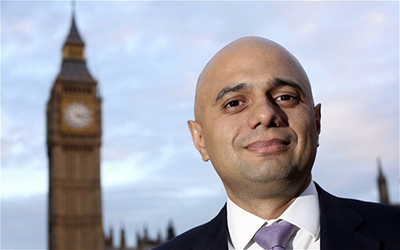Sajid Javid has announced plans to bolster patient choice in a bid to tackle the growing NHS backlog of routine treatment.
Unveiling the government’s long awaited elective recovery plan in parliament today, the Health Secretary said independent sector provision would play a key role in the target to increase elective activity by 30% over pre-pandemic levels.
Addressing long waits will be critical to the recovery of elective care, said Javid. Under the plans, he said long waiters would be given greater choice about their care to meet new targets, which include eliminating two-year waits by July this year and waits of over 18 months by April 2023. The aim is that no one will be waiting more than a year for elective care by March 2025.
Details are yet to be confirmed, but the NHS said it would build on existing rights for patients to choose where they have their first outpatient appointment and an alternative provider if the wait is too long.
The delivery plan for tackling the Covid-19 backlog of elective care, published today, says: ‘We will strengthen the systems and process that enable patient choice, and include independent sector partners as part of those options. This will support patients to understand and access the choices available to them, and they will be given more transparent information to aid their decision.’
The concept of patient choice was launched by Labour health secretary Alan Milburn in the early 2000s as part of wide-reaching market-based NHS reform aimed at tackling the long waits that had emerged during the 1990s. Initially confined to a few specialties, the ‘choice agenda’ was gradually rolled out to all elective care and since 2007, NHS patients have in theory had unfettered choice to all NHS hospitals, plus participating facilities in the independent sector.
In reality, however, the idea that NHS patients have easy access to the independent sector for routine surgery is wide of the mark. The NHS abandoned its choice awareness monitoring exercise in 2009 although a poll of 7,000 adults carried out by Populus on behalf of NHS England and Monitor in 2015 found that just 40% of patients recalled being offered a choice of hospital for their first outpatient appointment. A poll carried out on behalf of the Independent Healthcare Providers Network (IHPN) in 2019 suggested that just 48% of patients were aware they could choose a hospital for planned NHS funded treatment.
As part of the plans for elective recovery, NHS England said it would ensure patients have a choice at the point of referral and that this would be enhanced for long waiters through a national hub model.
Local NHS systems will also be encouraged to develop partnerships with independent providers to support long-term contracting and act at system level to respond to local challenges. Much of the additional independent sector capacity is likely to involve the transfer of high volume, low complexity work to the independent sector. This will free up capacity for the NHS to undertake more complex work. However, independent sector providers are also expected to play a key role in cancer pathways and diagnostics and NHSE said more complex cases could also be treated in independent sector sites.
NHSE said local partnerships between providers and the independent sector will build on nationally agreed principles and supported by ‘clear and consistent communication’ with patients which explains the role and options for using the independent sector. Systems will also have the opportunity to design a joint approach with the independent sector on workforce, which will ‘guarantee common standards of service provision based on opportunities for training and development and use of apprenticeships’.
The devil, of course is in the detail and as yet the government has not set out what levers will be used to increase independent sector capacity, although the document says ‘payments should be based on establishing the lowest risk and most effective incentives to increase activity’.
The IHPN welcomed the new strategy, which it said set out ‘a clear plan of action to improve patient access to care’.
‘Given the scale of the backlog, it’s vital an “all shoulders to the wheel” approach is taken to tackle NHS waiting lists and today’s plan rightly makes clear that the independent health sector is a vital tool in the NHS’ armoury to increase elective activity and bring down waiting times,’ said IHPN CEO David Hare.
‘This includes a much-needed bolstering of patients’ right to choose where they receive their NHS care, and a clear ambition to ensure patients have all the information they need to make the right choices about their treatment, whether in the NHS or independent sector.
‘Tackling the elective backlog is the public’s number one priority for the NHS and we must now see these positive commitments turned into concrete action, with a relentless focus on delivery in the coming months and years to ensure patients can access the care they need.’








 ©2024 All rights reserved LaingBuisson
©2024 All rights reserved LaingBuisson 

